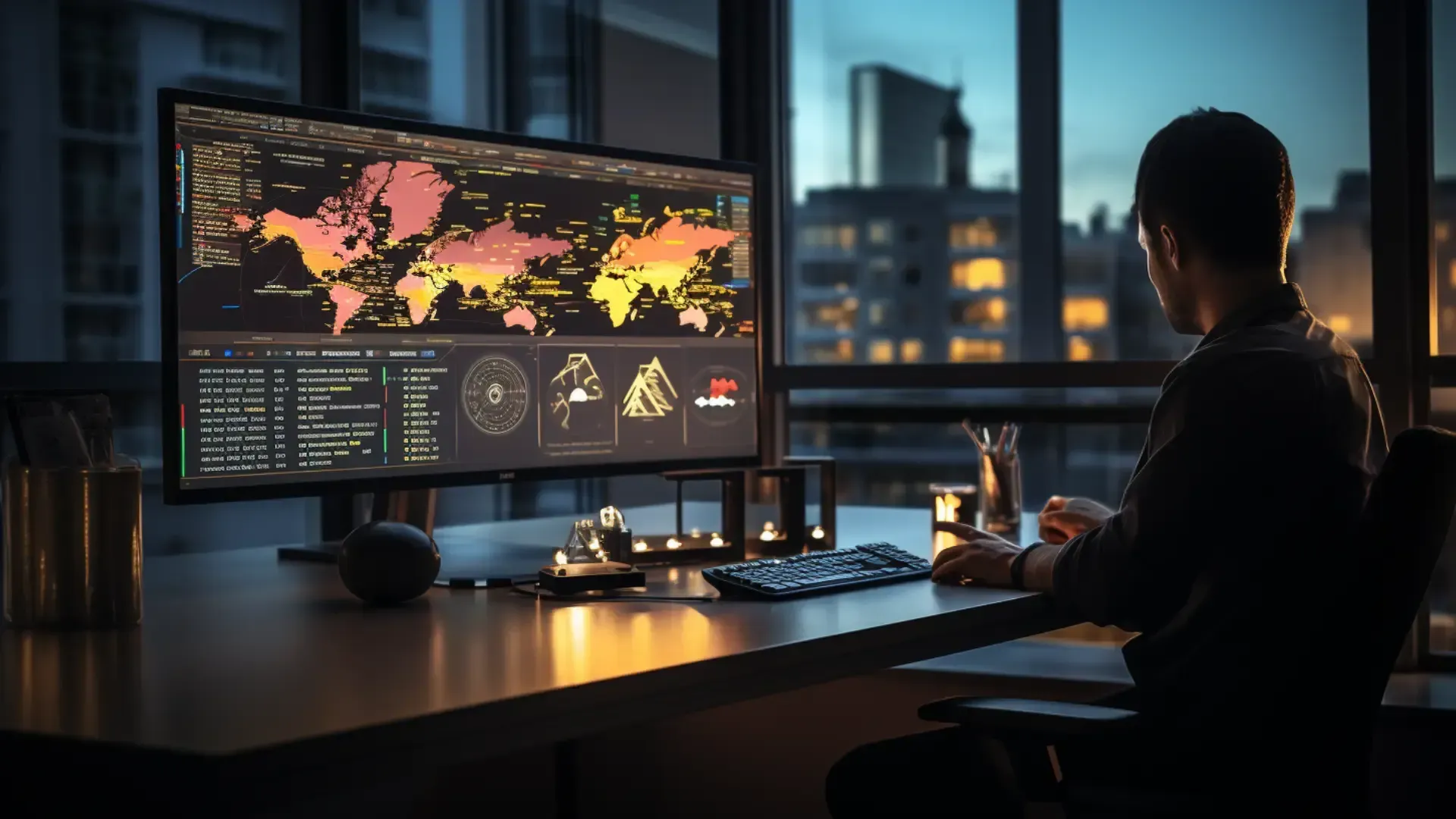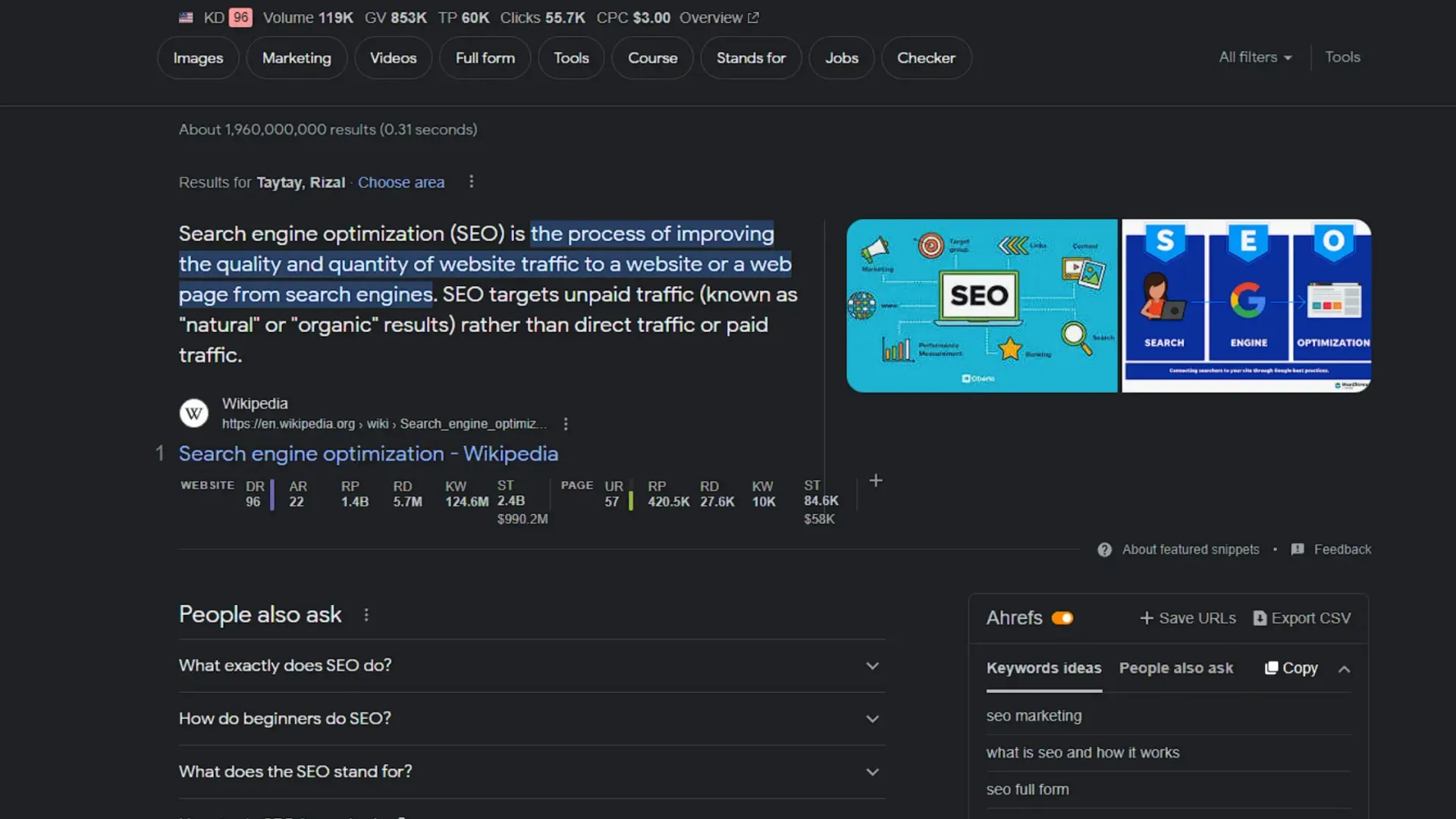Understanding the Extent of SEO Beyond Google and Bing
In today's digital landscape, the scope of Search Engine Optimization (SEO) transcends the confines of traditional search engines like Google and Bing. While these platforms undoubtedly hold significant sway over online visibility, the concept of SEO extends far beyond their domains, encompassing various facets of digital presence and audience engagement.

Expanding Horizons: Beyond Traditional Search Engines
Social Media Platforms
Social media platforms have emerged as formidable arenas for SEO endeavors. With billions of active users across platforms like Facebook, Instagram, Twitter, and LinkedIn, optimizing content for social discoverability has become paramount. Leveraging hashtags, crafting compelling captions, and fostering engagement through likes, shares, and comments are pivotal in enhancing visibility and driving organic reach.
YouTube and Video SEO
As the second largest search engine globally, YouTube presents unparalleled opportunities for content visibility. Video SEO tactics such as keyword optimization, captivating thumbnails, and engaging descriptions play a pivotal role in ensuring content ranks prominently within YouTube search results and suggested videos.
App Stores and Mobile SEO
With the proliferation of mobile devices, optimizing for app stores has become imperative for businesses with mobile applications. App Store Optimization (ASO) involves strategic keyword placement, compelling app descriptions, and enticing visuals to improve discoverability and drive downloads.
The Role of Local SEO
Google My Business
For brick-and-mortar establishments and service-based businesses targeting local clientele, Google My Business (GMB) optimization is indispensable. Completing business profiles, acquiring positive reviews, and geo-tagging content are crucial steps in enhancing local visibility and attracting nearby customers.
Local Directories and Listings
Beyond GMB, listing businesses in local directories like Yelp, TripAdvisor, and Yellow Pages can significantly bolster local SEO efforts. Consistent NAP (Name, Address, Phone Number) information across directories fosters trust and credibility, positively impacting local search rankings.
Harnessing the Power of Visual Search
Image and Video Optimization
With advancements in AI and machine learning, visual search has emerged as a potent SEO frontier. Optimizing images and videos with descriptive filenames, alt text, and structured data markup enhances their discoverability in visual search engines like Google Images and Pinterest.

Future Trends: Voice Search and Beyond
Voice Search Optimization
The proliferation of voice-activated assistants like Siri, Alexa, and Google Assistant has heralded a new era in search behavior. Optimizing content for voice search involves conversational keyword targeting, concise answers to common queries, and leveraging featured snippets to secure coveted position zero.
Emerging Technologies
Beyond current trends, emerging technologies such as augmented reality (AR) and virtual reality (VR) are poised to reshape the SEO landscape. Optimizing immersive experiences for searchability and accessibility will become increasingly vital as these technologies gain mainstream adoption.
Conclusion
In conclusion, the notion of SEO transcends the boundaries of conventional search engines, encompassing a myriad of digital platforms and technologies. By embracing a holistic approach to optimization and staying attuned to emerging trends, businesses can amplify their online visibility, engage diverse audiences, and stay ahead in an ever-evolving digital landscape.
Frequently Asked Questions (FAQ)
What is SEO?
SEO, or Search Engine Optimization, refers to the practice of optimizing digital content to improve its visibility and ranking within search engine results pages (SERPs). By adhering to SEO best practices, websites can attract more organic traffic from search engines like Google, Bing, and others.
Why is SEO important?
SEO is crucial for enhancing online visibility and driving organic traffic to websites. By ranking higher in search engine results, businesses can increase their brand visibility, attract more potential customers, and ultimately improve their online presence and revenue.
What are the key components of SEO?
The key components of SEO include:
- Keyword research and optimization
- On-page optimization (meta tags, headings, content)
- Off-page optimization (backlink building, social signals)
- Technical optimization (site speed, mobile-friendliness, crawlability)
How long does it take to see results from SEO efforts?
The timeline for seeing results from SEO efforts can vary depending on various factors such as the competitiveness of keywords, the quality of content, and the effectiveness of optimization strategies. Generally, it may take several weeks to several months to notice significant improvements in search engine rankings and organic traffic.
What is the difference between on-page and off-page SEO?
On-page SEO: Involves optimizing individual web pages to improve their relevance and visibility to search engines. This includes optimizing meta tags, headings, content, and internal linking.
Off-page SEO: Focuses on improving a website's authority and reputation through external factors such as backlinks, social signals, and online mentions from other websites.
How do I choose the right keywords for my SEO strategy?
Choosing the right keywords involves conducting thorough keyword research to identify terms and phrases that are relevant to your target audience and align with your business objectives. Consider factors such as search volume, competition, and user intent to select the most appropriate keywords for optimization.
What role does content play in SEO?
Content is a critical component of SEO, as search engines prioritize high-quality, relevant content when ranking web pages. Creating informative, engaging, and optimized content can help attract organic traffic, improve user experience, and establish authority within your industry.
How often should I update my SEO strategy?
SEO is an ongoing process that requires regular monitoring and adjustment to stay effective. It's essential to stay updated on search engine algorithm changes, industry trends, and competitor strategies to continually refine and optimize your SEO strategy for optimal results.










